Go Lean Commentary
Land of the Free and Home of the Brave. – lyrics from America’s National Anthem
 There is this great Summer Festival in this small town in the US State of South Dakota, the Sturgis Bike Rally. This event is so impressive that the Caribbean has long been urged to look, listen and learn from this event model. In fact, the 2013 book Go Lean…Caribbean – introducing the Caribbean Union Trade Federation (CU) – dedicates one Appendix (Page 288) to Sturgis.
There is this great Summer Festival in this small town in the US State of South Dakota, the Sturgis Bike Rally. This event is so impressive that the Caribbean has long been urged to look, listen and learn from this event model. In fact, the 2013 book Go Lean…Caribbean – introducing the Caribbean Union Trade Federation (CU) – dedicates one Appendix (Page 288) to Sturgis.
If only we can plan and execute events that draw 600,000 people to our small towns. (Sturgis only has less than 10,000 residents).
There is another lesson from Sturgis for us to consider, especially this year – 2020 with the Coronavirus COVID-19 pandemic – that is the need to balance “Freedom versus Public Safety”. This is a delicate issue with strong opinions on both sides of the issue. (Even the US President would tweet “Liberate X-State” when citizens protested strong lockdowns in their States: Pennsylvania, Michigan, Wisconsin, etc.). The participants-attendees at Sturgis insisted on their freedoms above and beyond all other values. See the Sturgis story here:
VIDEO – Massive Sturgis motorcycle rally taking place amid coronavirus concerns – https://www.nbcnews.com/nightly-news/video/massive-sturgis-motorcycle-rally-taking-place-amid-coronavirus-concerns-89793093627
Posted August 10, 2020 – Hundreds of thousands of bikers are expected to gather in Sturgis, South Dakota, where masks are encouraged but not required, despite coronavirus concerns. As schools across the country begin to reopen, Georgia’s largest district is dealing with the fallout from an outbreak.
Related:
More than 100 coronavirus cases in 8 states linked to massive Sturgis Motorcycle Rally in South Dakota
August 26, 2020 – The annual Sturgis Motorcycle Rally in South Dakota drew hundreds of thousands of bikers to the small town earlier this month — despite coronavirus concerns. Now, about three weeks after the rally kicked off, the repercussions are starting to become clear. More than 100 cases of COVID-19 connected to the rally have been reported in at least eight states, the Associated Press reports.
The movement behind the 2013 Go Lean book just completed – during August 2020 – a 6-part series on Pandemic Playbooks for the Caribbean region. It presented many Best Practices for managing our society during times of crisis. This is an important consideration right now as many Caribbean communities have had to institute lockdowns, which some considers “trampling on civil liberties”, in order to protect the general public. Is that right, just and honorable or is the suppression of civil-human rights just an expression of Tyranny. This commentary is an important supplement to the 6-part August Teaching Series. The other commentaries in the series were cataloged as follows:
- Pandemic Playbook: Worldwide Leadership – Plan ==> Actual
- Pandemic Playbook: Caribbean Inadequacies – Missing the Bubble Opportunities
- Pandemic Playbook: Bahamas Example – ‘Too Little Too Late’
- Pandemic Playbook: Only at the Precipice ENCORE
- Pandemic Playbook: To Be or Not To Be – COVID Vaccine
- Pandemic Playbook: Success – Looks like New Zealand
Let’s look at the jurisprudence of government lockdowns that imperil private citizens’ ability to live (attends births and weddings), work (provide for families), worship (limits on free assembly and at funerals) and play (travel and recreation impeded). The restriction placed on citizens by local governments call into question whether these homelands are truly free.
Are our freedoms absolute or only allowed when convenient? Is it Tyranny to impede those freedom during emergencies?
These are all good questions. Let’s see this comprehensive legal analysis by a respected lawyer (and law professor) here:
Title: The Peoples’ Constitution: COVID-19 versus Freedom
By: Ben Lenhart
The COVID-19 pandemic is threatening many of our most cherished freedoms. We are told by the government not to travel. We are told we can’t gather for religious services. We are told we must wear masks, but we must not go to restaurants or stores. Our favorite sporting events, school activities and even graduations are cancelled. In some places, we are told we may not gather even for the most important things in life: the birth of a newborn or the passing of a loved one. At rallies protesting the lockdown, participants claim their constitutional rights are being violated and that the “illegal” government orders must be lifted. Who is right: the protestors or the government?Put another way, do the governments’ actions taking away certain rights, even if only temporarily, violate the Constitution? This article seeks to answer that question using a few real-life examples.
COVID-19 Order Blocks Church in Kansas.
As part of a COVID “stay at home” order, Kansas barred more than 10 people from attending religious services. Two churches sued, claiming violation of their religious freedoms. The First Amendment bars the federal government from (A) establishing any official state religion, or (B) restricting Americans from freely exercising their religion of choice. A Kansas trial court realized this was a hard case: yes, the churches’ constitutional rights were being curtailed, but also, yes, the COVID-19 pandemic required urgent measures to protect public health. For guidance, the Kansas court looked to the famous quarantine case of Jacobson v. Massachusetts, where a man refused a mandatory smallpox vaccination during a smallpox epidemic. Recognizing the hard balance, the Supreme Court in Jacobson acknowledged both sides of the issue: First “when faced with a society-threatening epidemic, a state may implement emergency measures that curtail constitutional rights so long as the measureshaveatleastsome“realorsubstantialrelation”tothepublichealthcrisis …” But second, a law purporting to protect public health, may nevertheless be invalid if it “has no real or substantial relation to those objects, or is, beyond all question, a plain, palpable invasion of rights secured by the fundamental law.” In the end, the court upheld the government order requiring the vaccination.A COVID-19 order taking away our constitutional rights may be valid if (A) that order directly advances a public health goal (such as controlling the spread of COVID-19), and (B) the same goal can’t be achieved in a narrower way that does not curtail our Constitution rights (or curtails them to a lesser degree). If (A) and (B) are not true, the court may decide to strike down the order as unconstitutional.
Applying these rules, the Kansas court sided with the churches and against the government. Noting that Kansas’ stay-at-home-order singled out places of worship for stricter measures, the court found that, while the public health goals were important, they could be achieved while still allowing the churches to hold services in a safe manner with more than 10 people. The case settled on favorable terms for the churches before it could be appealed, and so the churches largely won this fight.
COVID-19 Order Blocks Abortions in Texas.
In order to preserve medical resources during the coronavirus pandemic, a Texas order banned many non-essential medical procedures, including abortions under most circumstances.Roe v. Wadefirst recognized the constitutional right to abortion more than 45 years ago. Abortion providers sued, claiming the order deprived them of their constitutional rights. Much like the Kansas church case, the Texas court recognized the two competing forces: the need to protect public health during the COVID crisis versus the constitutional right to abortion. On the one hand, the court agreed thatindividual rights secured by the Constitution are not lostevenduring a severe public health crisis. There is no “emergency override” of the Constitution. On the other hand, the Texas court, said that “liberty secured by the Constitution … does not import an absolute right in each person to be, at all times and in all circumstances, wholly freed from restraint.” Instead, the court fund that “a community has the right to protect itself against an epidemic of disease which threatens the safety of its members,” even when that means temporarily curtailing certain rights.In the end, the lower court largely sided with the abortion providers, ordering that they be allowed to continue during the COVID crisis, but an appellate court overruled the lower court, and allowed most of the abortion ban to continue. However, before the courts could come to a final ruling, the case was resolved, and abortions in Texas were largely allowed to continue during the Covid crisis.
COVID-19 Orders Deny the Right To Travel in Many States
To protect public health, many states have ordered that people not travel unless for essential purposes. But the right to travel is one of Americans’ most cherished freedoms. A drive to the mall, or to a friend’s house, or a road trip across America—the freedom to travel “where we want and when we want” helps define America. It is also a core rights long protected by the Constitution (although its precise source is still being debated). COVID travel bans present the same “hard balance” between our safety and constitutional rights. Faced with a severe pandemic where the very movement of people can spread the disease, courts would likely approve a limited travel ban, such as one that lasted a short time and had exceptions for emergencies and essential activities. On the other hand, courts would likely strike down a travel ban that was imposed rigidly for a year or more regardless of changes in the pandemic status, and that failed to allow reasonable exceptions to the ban. Such a ban would be unconstitutional because a more limited travel ban likely could achieve the same goal—protecting public health—without such a severe denial of constitutional liberty.The Outer Banks Travel Ban
The Outer Banks (OB) is a beloved vacation spot along the North Carolina coast. In March, it banned nonresidents from entering most of the OB but permitted residents to enter. This ban has two potential constitutional problems. First, it denies the right to travel discussed above. Second, by discriminating against non-residents, the ban may violate the so-called Dormant Commerce Clause, which generally prohibits states from favoring their own residents at the expense of out-of-staters. A huge reason why America’s economy has succeeded and grown to the largest in the world is that we have a free market among the 50 states. The constitutional framework allows commerce to flow freely across state lines. By violating this basic rule, the OB may be violating the Constitution unless it can show there is no less restrictive way to protect public health in the OB short of discriminating against non-residents.Korematsu
The COVID-19 stay-at-home orders impose real hardships, but compare those to the hardships during World War II. After Pearl Harbor, thousands of Japanese American citizens, most of unquestioned loyalty to the United States, were sent to internment camps far from their homes based on fears that a small number would side with Japanese war effort. This was a massive deprivation of the most basic constitutional rights of American citizens. In 1944 a sharply divided court, with stinging dissents, held that the urgent Japanese threat justified this extreme measure. But history was not kind to Korematsu, and it has become one of the Court’s most heavily criticized cases.Last year, Chief Justice Roberts said this:“The dissent’s reference toKorematsu, however, affords this Court the opportunity to make express what is already obvious:Korematsuwas gravely wrong the day it was decided, has been overruled in the court of history, and—to be clear—’has no place in law under the Constitution.’”
Why was Korematsu so wrong? Both because withheld evidence showed less threat from the Japanese Americans, and because there were ways to achieve the government’s goal (such as police investigative work) that did not involve such flagrant denial our Constitution rights, the order at issue in Korematsu was unconstitutional.
Conclusion
The COVID-19 constitutional balance is hard because the things being balanced are both vitally important: stopping the spread of the coronavirus is a matter of life and death; but many lives have also been lost over the past 232 years fighting to protect the rights guaranteed to all Americans in the Constitution. The examples above shed light on whether any particular COVID-19 order is constitutional. If that order takes away constitutional rights—such as the right to travel, the right to assemble, or freedom of religion—then ask if the government can achieve the same COVID-19 health goal in some other way that does not take away those rights or involves materially less interference with those rights. If the answer is no, then the law may well be constitutional, but if the answer is yes, then the balance may tip in favor of protecting our constitutional rights and striking down the order.
—–
Contributor Ben Lenhart is a graduate of Harvard Law School and has taught Constitutional Law at Georgetown Law Center for more than 20 years. He lives with his family and lots of animals on a farm near Hillsboro.
Source: LoudounNow, Loudoun, Virginia Daily Newspaper; retrieved May 7, 2020 from: https://loudounnow.com/2020/05/07/the-peoples-constitution-covid-19-versus-freedom/
Also see the insistence on freedoms portrayed in the Reader’s Commentary Section on this foregoing article:
By David Dickinson – 2020-05-07:
As if we needed any reminders, COVID-19 amply demonstrates that you can’t trust any level of government. It is also a scary demonstration of how out-of-control powerful we have allowed government to become. I don’t want to downplay the seriousness of COVID-19 and its virulence, but 40,000 people a year die in car accidents and we didn’t shut down highways; 80,000 from diabetes and we didn’t outlaw donuts; 50,000 from regular flu and we didn’t lock down anything (except the cold medicine at the pharmacy).
This commentor is passionate; he conveys the thought of Tyranny if he cannot get his way. This commentor could very well have been speaking from Sturgis, about Sturgis and on behalf of Sturgis; (these same passions bubble in the Caribbean).
The references to Sturgis requires more insight of the city/event, its dynamism; see the Go Lean excerpt (Page 191) here:
The Bottom Line on the Sturgis, South Dakota
Sturgis is a city in Meade County, South Dakota, United States. The population was 6,627 as of the 2010 census. It is the county seat of Meade County and is named after General Samuel D. Sturgis. Sturgis is famous for being the location of one of the largest annual motorcycle events in the world, which [started in 1938 and] is held annually on the first full week of August. Motorcycle enthusiasts from around the world flock to this usually sleepy town during the Sturgis Motorcycle Rally.
The focus of a motorcycle rally was originally racing and stunts. Then in 1961, the rally was expanded to include the “Hill Climb” and Motocross races.[145] The attendance was tallied in excess of 600,000 visitors in the year 2000. The City of Sturgis has calculated that the Rally brings over $800 million to South Dakota annually. (The City of Sturgis earned almost $270,000 in 2011 from just selling event guides and sponsorships). Rally-goers are a mix of white-collar and blue-collar workers and are generally welcomed as an important source of income for Sturgis and surrounding areas. The rally turns local roads into “parking lots”, and draws local law enforcement away from routine patrols. [The City frequently contracts with law enforcement officers from near-and-far for supplemental support-enforcements during the rally]. (See Appendix J [on Page 288] of Sturgis City Rally Department’s Statistics).
[Sturgis generates a lot of media attention]. Annual television coverage of the festival by the [cable TV network] VH1 Classic includes interviews and performances as well as rock music videos. Also, the Travel Channel repeatedly shows two one-hour documentaries about Sturgis.
Don’t get it twisted, these times of the Coronavirus COVID-19 pandemic constitute an emergency and “critical times calls for critical measures”. Tyranny is not a consideration. This is where we are. Everybody simply wants public safety and Good Governance. In a previous blog-commentary, this point was made about governmental deliveries during times of emergency:
Good Governance: Stepping Up in an Emergency
Do you know what SOS stands for?Of course you know what it infers – “Emergency; Need Help” …
SOS, plus 911 and other emergency outreach numbers, are all calls for help. In modern society, it is expected that someone-somewhere will respond.
That expectation is within the assumption of Good Governance. It is expected that someone-somewhere will step-up in the time of emergencies …
… failing this, we would have a Failed-State, [every man for himself].
…
[This roadmap provides] a glimpse of a new Caribbean that is ready for these New Guards. These are not foreigners. These are fellow Caribbean brothers and sisters, representing the 30 member-states in the region. They have the desire to help; they only need Good Governance …The CU structure allows for an Emergency Management functionality within the Homeland Security Department. The CU‘s version is modeled after the Federal Emergency Management Agency (FEMA) in the US. That agency’s emergency response is based on small, decentralized teams trained in such areas as the National Disaster Medical System (NDMS), Urban Search and Rescue (USAR), Disaster Mortuary Operational Response Team (DMORT), Disaster Medical Assistance Team (DMAT), and Mobile Emergency Response Support (MERS).
The Go Lean book provides … the strategies, tactics, implementations and advocacies to execute so as to reboot, reform and transform the societal engines of Caribbean society. We need to be better at responding to the SOS [(emergency)] calls in our region.
Good Governance versus Tyranny … “that is the question”.
This discussion on Sturgis 2020 presents that city/event as a good role model for us in the Caribbean, to contemplate both the opportunities and the bounds-limits of a free society. There is a pattern of Good Governance in Sturgis, even amongst all that Freedom – there is never tyranny. We have looked, listened and learned from that city/event before; most importantly, we have looked at Tyranny before. Let’s consider previous discussions (blog-commentaries) on Tyranny:
| https://goleancaribbean.com/blog/?p=18648 | Better Than ‘Bill of Rights’ – ‘Third & Fourth Amendments’: Justice First
When strong individuals abuse weaker ones in society, we call it bullying. When governmental institutions do it, we call it: Tyranny. Planners for a new Caribbean governance must consider constitutional provisions to mitigate the threat of tyranny. |
| https://goleancaribbean.com/blog/?p=18337 | Unequal Justice: Bullying Magnified to Disrupt Commerce
Conditions of Unequal Justice can go from “bad to worse” when bullies are not checked. Such “bad actors” can emerge from terrorizing a family, to a neighborhood, to a community, to a nation, to a region, to a hemisphere, to the whole world. Think: Nazi Germany, Imperial Japan, Soviet Russia, British Empire, Napoleonic France, Spanish Inquisition. Unchecked, bad actors in the community become tyrants – they can even affect the local economic engine. |
| https://goleancaribbean.com/blog/?p=18321 | Unequal Justice: Sheriffs and the need for ‘soft’ Tyrannicide
The reality of southern rural life for African Americans was that justice was impeded by one institution, often one character: the County Sheriff. |
| https://goleancaribbean.com/blog/?p=5506 | Role Model: Edward Snowden – One Person Making a Difference
This whistleblower exposed the blatant tyranny in the electronic surveillance system. |
| https://goleancaribbean.com/blog/?p=2809 | A Lesson in History – Economics of East Berlin The City of “East” Berlin used tyranny to bully its citizens, even for its economics. They operated the city like a maximum security prison and ransomed the citizens wanting to leave. |
| https://goleancaribbean.com/blog/?p=2338 | Welcoming the Dreaded ‘Plutocracy’
Big companies can bully and terrorize small communities. But the structure of a Self-Governing Entity would mitigate their threat of tyranny. |
The Coronavirus COVID-19 virus has caused emergencies through out the Caribbean – freedoms have had to be culled in order to save lives and to preserve our economic engines for future executions. There is the need for better balance between freedoms and public safety. The reality and actuality of an efficient Pandemic Playbook reflects the urgent need for the Caribbean member-states to appoint “new guards”.
We urge all Caribbean stakeholders – governments and citizens – to deploy an effective and efficient Pandemic Playbook for our region. Allow the needed emergency powers, but for the shortest times possible. This is the purpose of the Go Lean roadmap; this is how we can make the Caribbean homeland a better place to live, work, worship and play.
There are good, bad and ugly lessons from Sturgis, South Dakota. There are lessons from other communities as well who have instituted emergencies and managed the careful balance between Freedom and Tyranny. Yes, Good Governance is hard-work; Good Governance in times of emergencies is even more heavy-lifting. So our obligation for an efficient and effective Pandemic Playbook is conceivable, believable and achievable. 🙂
About the Book
The book Go Lean…Caribbean serves as a roadmap for the introduction and implementation of the technocratic Caribbean Union Trade Federation (CU), for the elevation of Caribbean society – for all member-states. This CU/Go Lean roadmap has these 3 prime directives:
- Optimization of the economic engines in order to grow the regional economy to $800 Billion & create 2.2 million new jobs.
- Establishment of a security apparatus to ensure public safety and protect the resultant economic engines.
- Improve Caribbean governance to support these engines, including a separation-of-powers between the member-states and CU federal agencies.
The Go Lean book provides 370-pages of turn-by-turn instructions on “how” to adopt new community ethos, plus the strategies, tactics, implementations and advocacies to execute so as to reboot, reform and transform the societal engines of Caribbean society.
Download the free e-Book of Go Lean … Caribbean – now!
Who We Are
The movement behind the Go Lean book – a non-partisan, apolitical, religiously-neutral Community Development Foundation chartered for the purpose of empowering and re-booting economic engines – stresses that reforming and transforming the Caribbean societal engines must be a regional pursuit. This was an early motivation for the roadmap, as pronounced in the opening Declaration of Interdependence (Pages 12 – 14):
x. Whereas we are surrounded and allied to nations of larger proportions in land mass, populations, and treasuries, elements in their societies may have ill-intent in their pursuits, at the expense of the safety and security of our citizens. We must therefore appoint “new guards” to ensure our public safety and threats against our society, both domestic and foreign. …
xi. Whereas all men are entitled to the benefits of good governance in a free society, “new guards” must be enacted to dissuade the emergence of incompetence, corruption, nepotism and cronyism at the peril of the people’s best interest. The Federation must guarantee the executions of a social contract between government and the governed.
xii. Whereas the legacy in recent times in individual states may be that of ineffectual governance with no redress to higher authority, the accidence of this Federation will ensure accountability and escalation of human and civil rights of the people for good governance, justice assurances, due process and the rule of law. As such, any threats of a “failed state” status for any member state must enact emergency measures on behalf of the Federation to protect the human, civil and property rights of the citizens, residents, allies, trading partners, and visitors of the affected member state and the Federation as a whole.
xvi. Whereas security of our homeland is inextricably linked to prosperity of the homeland, the economic and security interest of the region needs to be aligned under the same governance. Since economic crimes … can imperil the functioning of the wheels of commerce for all the citizenry, the accidence of this Federation must equip the security apparatus with the tools and techniques for predictive and proactive interdictions.
xxxiii. Whereas lessons can be learned and applied from the study of the recent history of other societies, the Federation must formalize statutes and organizational dimensions to avoid the pitfalls of communities like … . On the other hand, the Federation must also implement the good examples learned from developments/communities like … [Sturgis, South Dakota].
Sign the petition to lean-in for this roadmap for the Caribbean Union Trade Federation.
 When the going gets tough, the tough gets going – Old Adage
When the going gets tough, the tough gets going – Old Adage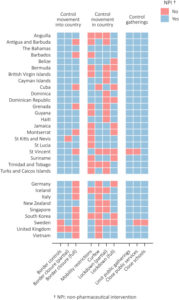

 Welcome to the … Bubble.
Welcome to the … Bubble. The 2020 NBA Bubble, also referred to as the Disney Bubble
The 2020 NBA Bubble, also referred to as the Disney Bubble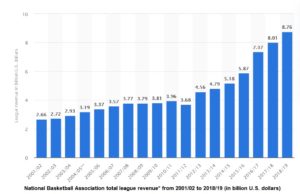
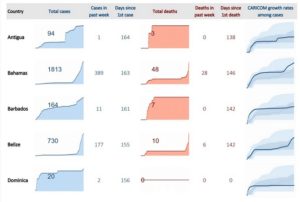
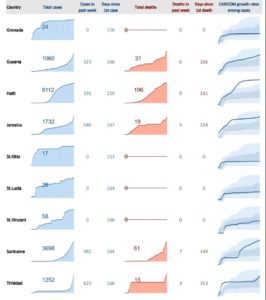
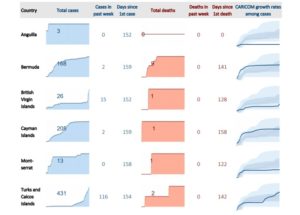
 The Battle 4 Atlantis is an early-season
The Battle 4 Atlantis is an early-season  Royal Caribbean is considering
Royal Caribbean is considering  All lives matter …
All lives matter …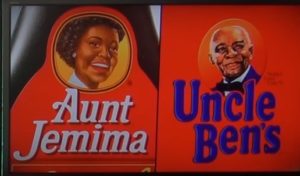 Aunt Jemima brand to change name, remove image that Quaker says is ‘based on a racial stereotype’
Aunt Jemima brand to change name, remove image that Quaker says is ‘based on a racial stereotype’ DSW
DSW
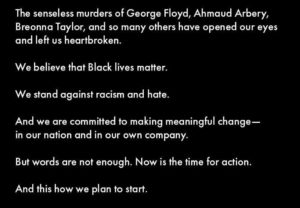
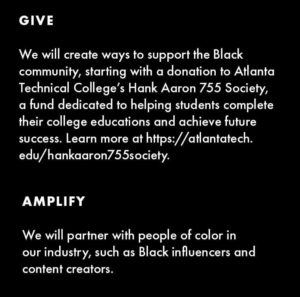
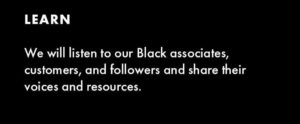
 CEO Charlie Scharf announced on Tuesday (July 14, 2020) a series of commitments to ensure the company’s ongoing diversity and inclusion efforts result in meaningful change. [He stated]:
CEO Charlie Scharf announced on Tuesday (July 14, 2020) a series of commitments to ensure the company’s ongoing diversity and inclusion efforts result in meaningful change. [He stated]: “Not throwing away my shot … young, scrappy and hungry” – Hit song from Broadway musical Hamilton; see
“Not throwing away my shot … young, scrappy and hungry” – Hit song from Broadway musical Hamilton; see 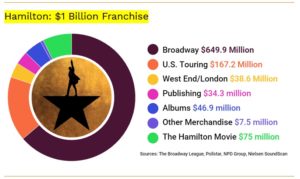


 This is what all the rave is about with this fascinating play; it tells the story of America’s founding fathers through the eyes of the immigrant experience. (This writer saw Hamilton on December 28, 2018 at the Broward Performing Arts Center in Ft Lauderdale, FL).
This is what all the rave is about with this fascinating play; it tells the story of America’s founding fathers through the eyes of the immigrant experience. (This writer saw Hamilton on December 28, 2018 at the Broward Performing Arts Center in Ft Lauderdale, FL). I’ll admit, I was skeptical going into the play. My friend and I had gotten tickets when they first went on sale almost 9 months before opening night. We saw it in its first month on Broadway after the success off-Broadway. I remember sitting in my chair prior to the curtain rise, uncertain of whether I’d like a modern take on a history. Could it reach across the aisle of race? Could it hold attention of a subject most forget about? Would I get it? Did I really wait 9 months and spend hundreds of dollars for something that might just be weird? It took exactly 1 minute until those questions left my mind and instead I was entrapped, enamored, enthralled with this play that lives up to one of the numbers “non-stop.” It was a non-stop journey, filled with humor, and anguish, and longing. I was converted. I was in love.
I’ll admit, I was skeptical going into the play. My friend and I had gotten tickets when they first went on sale almost 9 months before opening night. We saw it in its first month on Broadway after the success off-Broadway. I remember sitting in my chair prior to the curtain rise, uncertain of whether I’d like a modern take on a history. Could it reach across the aisle of race? Could it hold attention of a subject most forget about? Would I get it? Did I really wait 9 months and spend hundreds of dollars for something that might just be weird? It took exactly 1 minute until those questions left my mind and instead I was entrapped, enamored, enthralled with this play that lives up to one of the numbers “non-stop.” It was a non-stop journey, filled with humor, and anguish, and longing. I was converted. I was in love. I went to see it a second time a few months, later, unable to wait until the soundtrack was finally released, I bought a resale ticket at far too high of an amount for my poor social work status. But I had to go, the play had brought about a plague within me; this wasn’t just a good show, it was something far beyond. Much like its creator Lin-Manuel Miranda, I began what has still been obsessive task of reading book after book on Hamilton, and the rest of those influential individuals who shaped the country. I wake up with the music in my head, and despite my best efforts, can’t stop listening to the songs. And then it hit me. This isn’t just a great musical and it’s not just because it is new and different, it’s because despite almost 300 hundred years since this man stood with the revolution, its relevant. And not in the way you think.
I went to see it a second time a few months, later, unable to wait until the soundtrack was finally released, I bought a resale ticket at far too high of an amount for my poor social work status. But I had to go, the play had brought about a plague within me; this wasn’t just a good show, it was something far beyond. Much like its creator Lin-Manuel Miranda, I began what has still been obsessive task of reading book after book on Hamilton, and the rest of those influential individuals who shaped the country. I wake up with the music in my head, and despite my best efforts, can’t stop listening to the songs. And then it hit me. This isn’t just a great musical and it’s not just because it is new and different, it’s because despite almost 300 hundred years since this man stood with the revolution, its relevant. And not in the way you think.
 “History Has Its Eyes On Us” is the title of a song in the Hamilton Play – see Appendix VIDEO – and also a truism. There are lessons we must learn from the history of Alexander Hamilton. We must, like he did, fight for change and progress; as conveyed in the foregoing article:
“History Has Its Eyes On Us” is the title of a song in the Hamilton Play – see Appendix VIDEO – and also a truism. There are lessons we must learn from the history of Alexander Hamilton. We must, like he did, fight for change and progress; as conveyed in the foregoing article: So you love your community, but does the community love you back?!
So you love your community, but does the community love you back?! For weeks, Kelly Stanton wasn’t sleeping. She lay in bed gripped with the anxiety of having to go to work at a Washington, D.C.-area hospital not knowing whether she might bring home the coronavirus to her husband and their three children.
For weeks, Kelly Stanton wasn’t sleeping. She lay in bed gripped with the anxiety of having to go to work at a Washington, D.C.-area hospital not knowing whether she might bring home the coronavirus to her husband and their three children.


 Good Project Management = Good Leadership.
Good Project Management = Good Leadership. That is right; the typewriter was only used by secretaries, journalists and/or authors; (think Murder She Wrote
That is right; the typewriter was only used by secretaries, journalists and/or authors; (think Murder She Wrote  The Scaled Agile Framework (SAFe) is a set of organization and workflow patterns intended to guide enterprises in
The Scaled Agile Framework (SAFe) is a set of organization and workflow patterns intended to guide enterprises in  The primary reference for the scaled agile framework was originally the development of a big picture view of how work flowed from
The primary reference for the scaled agile framework was originally the development of a big picture view of how work flowed from  “It is good to be lean”.
“It is good to be lean”.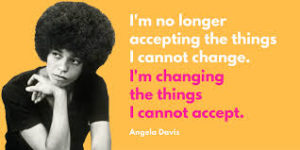

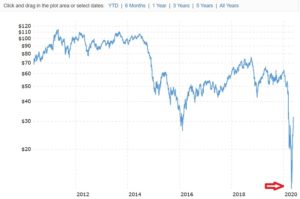
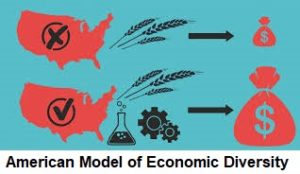
 Saudi Arabia finds itself at a significant economic crossroads. Home to the second-largest oil reserves in the world, the kingdom’s economy has been largely defined by the crude industry since drillers first struck oil in Dammam in March 1938. The discovery marked a watershed moment in the nation’s history, sparking an economic boom and propelling Saudi Arabia towards becoming one of the world’s wealthiest countries. Today, the nation is recognised as a global economic powerhouse, sitting among the G20 countries and boasting one of the highest GDPs in the Middle East.
Saudi Arabia finds itself at a significant economic crossroads. Home to the second-largest oil reserves in the world, the kingdom’s economy has been largely defined by the crude industry since drillers first struck oil in Dammam in March 1938. The discovery marked a watershed moment in the nation’s history, sparking an economic boom and propelling Saudi Arabia towards becoming one of the world’s wealthiest countries. Today, the nation is recognised as a global economic powerhouse, sitting among the G20 countries and boasting one of the highest GDPs in the Middle East. he strong urging to the Caribbean today is to:
he strong urging to the Caribbean today is to: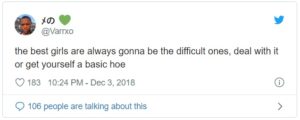


 The take-away from this foregoing “ugly” definition is that “basic is ‘plain and simple’”.
The take-away from this foregoing “ugly” definition is that “basic is ‘plain and simple’”. Thanks to the Coronavirus – COVID-19 crisis, the world is re-thinking the fulfillment of these basic needs. Believe it or not, in every jurisdiction Food Service workers are now regarded as Essential Workers. This is a fundamental change – a shift in values – for jobs that had previously been valued as inconsequential or unworthy for most, except the lowest in society; think the new immigrants (
Thanks to the Coronavirus – COVID-19 crisis, the world is re-thinking the fulfillment of these basic needs. Believe it or not, in every jurisdiction Food Service workers are now regarded as Essential Workers. This is a fundamental change – a shift in values – for jobs that had previously been valued as inconsequential or unworthy for most, except the lowest in society; think the new immigrants (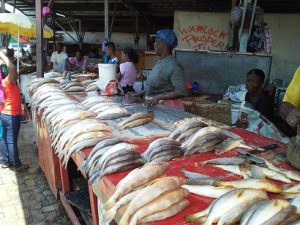 Rather than an insult, we need to be proud to be more technocratic in the fulfillment of our basic needs. “Plain and simple”, we need to:
Rather than an insult, we need to be proud to be more technocratic in the fulfillment of our basic needs. “Plain and simple”, we need to: In case you missed it:
In case you missed it: With the U.S. government declaring a state of emergency due to the coronavirus, companies are enabling work-from-home structures to keep business running and help employees follow social distancing guidelines. However, working remotely has been on the rise for a while.
With the U.S. government declaring a state of emergency due to the coronavirus, companies are enabling work-from-home structures to keep business running and help employees follow social distancing guidelines. However, working remotely has been on the rise for a while. Now for the corporate realizations and lessons-learned: perhaps businesses can accomplish Work from Home just as successfully as Work from the Office.
Now for the corporate realizations and lessons-learned: perhaps businesses can accomplish Work from Home just as successfully as Work from the Office. This is the business model for the Go Lean roadmap; while the rest of the world wrestle with the choices of which jobs to bring back to the workplace versus which jobs to allow to WFH, the Caribbean Union Trade Federation wants to present the proposals to bring those WFH jobs here. So maybe now, our Caribbean citizens can find new economic opportunities abroad without actually going abroad or abandoning the homeland.
This is the business model for the Go Lean roadmap; while the rest of the world wrestle with the choices of which jobs to bring back to the workplace versus which jobs to allow to WFH, the Caribbean Union Trade Federation wants to present the proposals to bring those WFH jobs here. So maybe now, our Caribbean citizens can find new economic opportunities abroad without actually going abroad or abandoning the homeland.